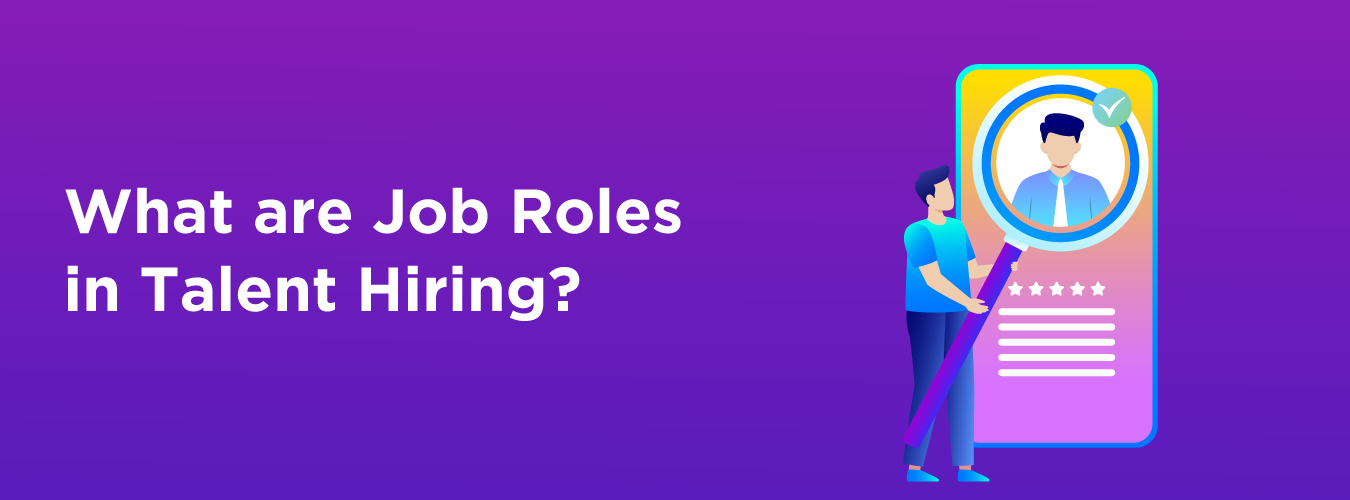Talent hiring
The importance of strategic acquisition of talented persons in modern talent hiring has come to the light of organizations in the dynamic environment for survival. Modern talent acquisition relies on a mix of technology, data analytics and insight into changing consumer tastes. However, searching for extraordinary talent surpasses only academic credentials and involves assessment of social compatibility, ability to adjust, and common vision. Companies use modern recruitment platforms and artificial intelligence that speed up hiring processes while maintaining high standards. Talent hiring strategies now incorporate the embrace of diversity and inclusion as key aspects that offer numerous gains in terms of creativity and resisting corporate weakness. Today, many employers are embracing virtual hiring, which requires flexibility and skill at evaluating candidates who only participate online. In fact, with the ever-changing world of talent, only successful companies develop a climate for life-long education and flexibility to compete with each other for best minds in the job market.
Table of Contents
- Talent hiring
- Importance of talent hiring in industries
- Benefits of talent hiring
- Types of job roles in Talent hiring
- Conclusion
- Frequently Asked Questions:
Importance of talent hiring in industries
Among them is the contribution of talent to innovation and problem-solving. Diverse, skilled workforce provides innovative approaches in overcoming challenges. During an age when innovation forms the base upon which growth proceeds; possessing a group with talents as diverse as possible would be a step ahead of rivals.
Additionally, culture is heavily influenced by how talent is hired in an organization. Good hires are not just skills but attitude and ethos that they bring on board for the organization at large. It is important for employees to be engaged in their workplace. The quality of the organizational atmosphere determines the level of engagement. A good one leads toward heightened productivity and the employee’s satisfaction. Such results save a company’s time and capital by curving the turnover rates.
Future-proofing business is also defined by efficient talent hiring. The skills required by a particular industry also change with time. Forecasting of future required skills for talent acquisition is a key aspect in ensuring employees are ready to change with new trends as well as incorporate new technology advancement.
Besides immediate skill-matching, cultural fit and compatibility with the companies’ value are essential. The organization will be more motivated because of employees’ commitment and investment into their roles when they resonate with the organizational mission. Besides improving the job satisfaction it helps build a favourable brand perception which attracts a similar kind of people to the organization.
Benefits of talent hiring
-
Strategic Advantage:
Asking in for excellence means possessing the quality skill sets that will enable your company to overrun its competitors’.#ityEngine : None
-
Innovation Catalyst:
Innovation comes about through diverse and talented teams. You attract bright minds which brings freshness of ideas into your organization.
-
Enhanced Productivity:
A motivated and talent-driven workforce will always be more productive. This combination of workmanship and passion results into more output and good general performanace.
-
Adaptability and Resilience:
Most talented people can become proficient in any task they undertake. Resilience, a quality that cannot be overstated in the dynamic business world.
-
Employee Retention:
Talent is key for attracting and retaining best performers translating to reduced costs of turnovers and having a stable experience staff.
-
Improved Company Culture:
A good workplace culture is characterized by highly skilled teams that foster collaboration, mentorship, and joint goal-orientedness.
-
Customer Satisfaction:
The talented employees deliver better services which affects customers’ satisfaction and loyalty as well.
-
Global Competitiveness:
At present, any company needs to have a multi-talented team which allows you to be competitive globally; open foreign doors, giving you more chances to grow.
Types of job roles in talent hiring
Each of these roles is significant – right from sourcing for candidates to negotiations of offers and other processes in building a superior team. Let’s delve into the diverse types of job roles in talent hiring:
Recruitment Specialist:
- Responsible for understanding hiring needs.
- Crafts job descriptions and specifications.
- Source candidates through different approaches.
It screens resumes, undertakes telephone interview of shortlisted candidates prior to a face-to-face interview.
Sourcing Strategist:
- Specialized at detecting prospective job applicants.
- Social media, online jobs posting boards and various networking events.
- Helps to set up talent pools for future positions of need.
Talent Acquisition Manager:
- Oversees the entire hiring process.
- Develops recruitment strategies and policies.
- Manages a team of recruiters.
- Works closely with department heads to determine staffing requirements.
HR Generalist:
- Assists different departments in determining employees needed.
- Helps in defining job duties and job descriptions.
- Conducts initial candidate screenings.
- Works in agreement with the managerial staffs and recruiters.
Interview Coordinator:
- Coordinates interviews between candidates and hiring teams.
- Facilitating efficiency and order in the process of an interview.
- Collects feedback from interviewers.
Compensation and Benefits Specialist:
- Compute salary levels and assess competitive benefits plans.
- Participates in salary negotiations.
- Competitive and attractive compensations.
Employer Branding Specialist:
- Puts an emphasis on the company’s employer brand.
- Creates a strategy for attracting a highly competent labor force.
- Handling the company’s presence in employer review sites.
Diversity and Inclusion Recruiter:
- Specializes in attracting diverse candidates.
- Introduces strategies that ensure diversity in the recruitment process.
- Works collaboratively with different agencies and individuals in order to promote inclusive culture.
Onboarding Coordinator:
- Smooth transition of new employees.
- Coordinates orientation programs.
- They help understand and also file documents.
Recruitment Technology Specialist:
- Handles and maximizes on the usage of recruitment software.
- Implementing better technology on for hiring process.
- Provides training on recruitment tools.
Headhunter or Executive Recruiter:
- Focuses on recruiting for senior-degree and government positions.
- Networks with industry leaders.
- Executes private and high-profile searches.
In end, the sector of expertise hiring encompasses a big range of job roles, every contributing uniquely to the recruitment method. From the initial identity of candidates to the onboarding manner, those roles paintings in harmony to make sure that businesses build robust, succesful teams. Understanding the extraordinary duties of every role is critical for creating an green and powerful hiring strategy. As agencies evolve, so too will the landscape of skills acquisition, with new roles rising to fulfill the demands of destiny.
Conclusion
Hence, companies must understand that talent acquisition is vital in guiding them through a turbulent business milieu. The current hiring process looks at academic qualifications as well as the usage of technology, data analytics, and focusing in social interactions. The competent teams do more than just innovate; they also dictate on organizational cultures that are productive and promote positive employee attitudes. This can lead to gain of strategic advantages, better performance and flexible nature besides improving overall global competitiveness. Building a strong team requires it identify different roles such as recruitment specialist and an on-boarding co-ordinator and talent acquisition will continue to adapt itself for fulfilling the forthcoming needs of a business.
Frеquеntly Askеd Quеstions
1. What does the talent team do?
In this context, talent team usually includes recruiter, sourcer, talent acquisition specialist, and intermediary. Candidate screening, sourcers locate possible candidates, talent acquisition specialists run through the whole hiring procedure on, and intermediaries deal with logistics, e.g., visas in general.
2. In this regard, what is the responsibility of a talent manager during the recruitment process?
A talent manager in charge of recruitment manages the whole hiring process. Creates strategic workforce plan, works closely with hiring managers while ensuring the team achieves its recruiting quotas. These tasks involve acquiring talent, welcoming newcomers, and cultivating an excellent candidate experience.
3. What are the responsibilities involved in a talent position?
Talent stage refers to attracting the most talented applicants to fit company positions. The responsibilities always include drafting job descriptions, interviewing potential employees, creating offer negotiation, and working with other business units on delivering on hiring demands that are required by organizations for them to attain their aims on time.









